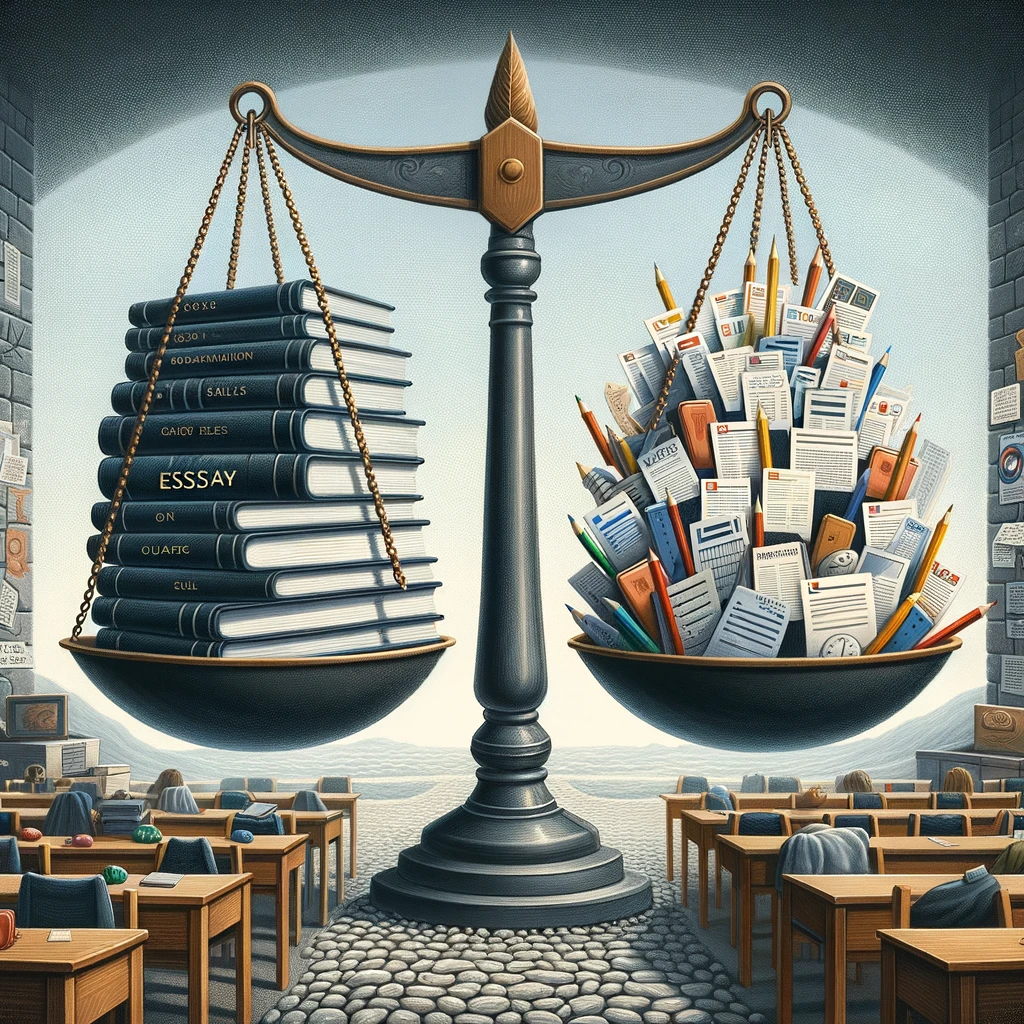What are the relative merits and demerits of an essay at the end of the course and more than one method of formative assessment throughout the course?
Assessing students’ performance in a ten-week short course at Level 4 (which often corresponds to the first year of higher education in many frameworks) requires a method that not only evaluates what students have learned but also supports their learning process. The best way of assessment might vary depending on the course objectives, content, and the skills it aims to develop. However, a mixed approach that includes both formative assessments throughout the course and a summative assessment, such as an essay at the end, can offer a comprehensive evaluation and support for student learning.
Essay at the End of the Course
Merits:
- Depth of Understanding: An essay allows students to explore a topic in-depth, demonstrating their understanding, critical thinking, and ability to synthesize information.
- Evidence of Learning: It provides a tangible product that reflects the student’s learning over the entire course.
- Writing Skills: Essays help develop and assess students’ writing skills, which are critical in many academic and professional contexts.
Demerits:
- Stress and Pressure: A single high-stakes assessment can increase stress and may not accurately reflect a student’s abilities if they perform poorly under pressure.
- Limited Feedback Opportunities: If the essay is the sole method of assessment, students miss out on regular feedback that could help them improve over the course duration.
- Potential for Narrow Focus: Students might focus solely on what they believe will be assessed in the essay, potentially neglecting broader course content.
Formative Assessment Throughout the Course
Merits:
- Continuous Feedback: Regular assessments provide ongoing feedback, helping students identify their strengths and areas for improvement.
- Supports Learning Process: Formative assessments can enhance learning by allowing students to apply concepts as they learn them, reinforcing understanding.
- Reduces Pressure: Spreading the assessment load reduces the pressure associated with a single, high-stakes task.
Demerits:
- Increased Workload: Regular assessments can increase the workload for both students and instructors, possibly leading to assessment fatigue.
- Consistency and Fairness: Ensuring consistency and fairness in feedback and grading across multiple assessments can be challenging.
- Risk of Dilution: There’s a risk that the continual focus on assessment could dilute the learning experience, with too much emphasis on performance rather than deep learning.
Conclusion
The optimal approach might involve a blend of both strategies: use formative assessments to support and guide learning throughout the course and a summative assessment, like an essay, to evaluate comprehensive understanding and synthesis of the course material at the end. This hybrid approach leverages the merits of both methods while mitigating their demerits. Formative assessments encourage engagement and provide continuous feedback, fostering a supportive learning environment. The final essay then allows for a deeper exploration of a topic, assessing students’ ability to apply and integrate their knowledge comprehensively.
[Written and illustrated with the help of ChatGPT 4 and Dall-e 2.]


